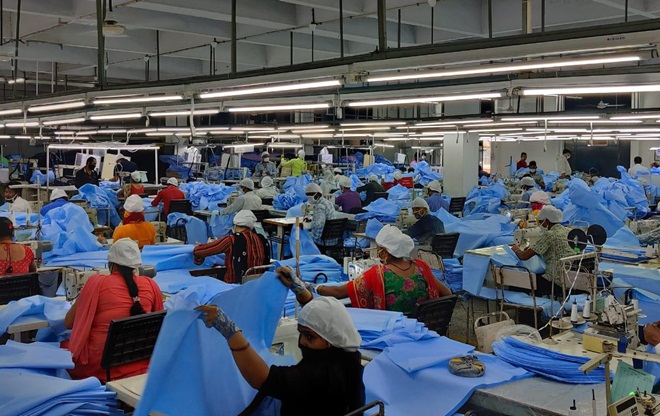TLI Staff
New Delhi: Grappling with a host of problems which got accentuated during pandemic, micro, small and medium enterprises (MSMEs) could tap e-commerce for growing their exports and also become part of the global supply chain by building on their capability.
The government on its part would need to provide low-cost funds, reduce logistics cost and ease custom rules among other key measures, senior economists and experts said while participating in a webinar hosted by industry body FISME.
As pandemic has caused massive job loss and reduced income back home, MSMEs could look out for market access by offering quality products at competitive price.
Stating that e-commerce is incredibly critical for greater market access, Pahle India Foundation Head of Research Nirupama Soundarajan suggested that custom rules could be amended to ensure that any shipment which is returned by customers abroad should not be treated as import into the country.
“We need to find a way to not categorising them as imports. That has been a big impediment,” Soundarajan said while emphasising that building strong brands was another key task to connect with the customers globally.
Sabina Dewan, President and Executive Director of JustJobs Network concurred with the panelists on the role of e-commerce in accessing new markets and said, “Ecommerce is going to emerge as a viable alternative. It is already emerging as a viable alternative. There are e-commerce companies that have done much better in this pandemic-ridden world than physical retail businesses.”
Dewan noted that India’s trade to GDP ratio is lower than other emerging economies and it has been consistently declining since 2012.
“From 55.8% to 41.1% between 2012 and 2017, not only is our trade to GDP ratio is falling but our exports are also less diversified and tend to concentrate in capital intensive as opposed to labour intensive goods and from my perspective it is not good for employment,” she added.
The experts highlighted the role of trade pacts involving major markets and blocks. They suggested that such trade pacts could help MSMEs in getting access to new markets. It would also help them re-align their manufacturing capacity and become part of global supply chain.
Arpita Mukherjee, Professor, Indian Council for Research on International Economic Relations (ICRIER) suggested that India staying out of Regional Comprehensive Economic Partnership (RCEP) could make things a bit difficult.
While it was generally believed that MNCs would re-orient their supply chains out of China. But instead of that China suddenly signed the RCEP. The move is being seen as disadvantageous for India given that it is out of the mega trade pact which covers a market spread across 15 countries and 2 billion of world’s population.
Besides, Indian government has launched Atmanirbhar Bharat (Self-reliant India) initiative for becoming global manufacturing hub. In order to make it a success, the government has restricted imports especially from China which is considered a major source market for raw inputs. This has resulted in price increase of many key raw materials such as steel and plastics.
Experts have said that the supply chain cannot be redesigned overnight and that it will take 4-5 years for Atmanirbhar Bharat to take the intended shape.
“We are at a time when we don’t have a trade agreement with our key export markets be it US, UK or EU. We have walked out of a trade agreement with a market which was not our key export market but from which we were importing quite a bit. We are revisiting trade agreement with ASEAN nations Japan, (South) Korea. So we really don’t know what is going to be,” the ICRIER Professor said.
Amidst slowing economy, and uncertainty around global trade due to pandemic and changing world order, MSMEs are considered worst-affected. Paucity of funds at reasonable interest rate has made them vulnerable and only those with cash savings have shown resilience during the ongoing crisis.
Talking about the challenges faced by the sector, Anil Bhardwaj, Secretary General, FISME said that less than 10% of MSMEs have access to institutional funds. The smaller firms have limited access to approved industrial plots and therefore most of the enterprises operate from unauthorised areas.
“Almost 80-90% of the MSMEs operate from unauthorised areas. The moment someone operates from such areas their ability to raise finances from banks get diminished or curtailed to a large extent,” he said.
The country’s MSME sector accounts for more than 40% of India’s exports, and contributes nearly 30% to the country’s GDP. India has set the vision to increase the contribution of MSMEs to the country’s exports to 60% in the next few years.

